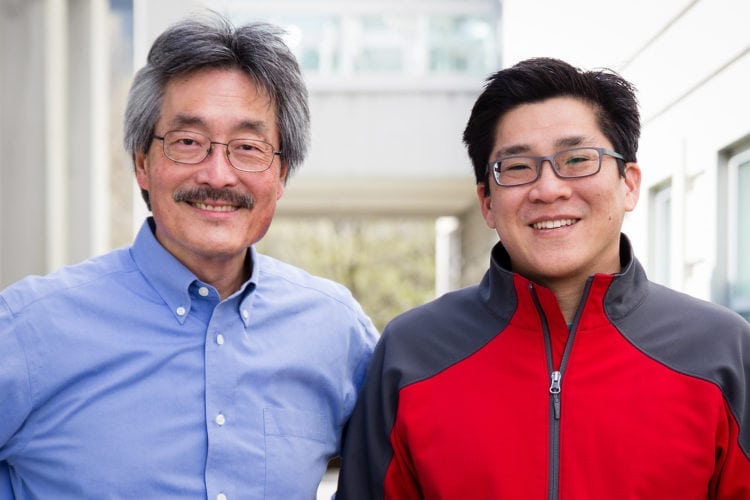
Pharmaceutics Professor Shiu-Lok Hu and Kelly Lee, Associate Professor of Medicinal Chemistry, received funding for research to create a vaccine against HIV. This research builds upon decades of research by these investigators funded by the National Institutes of Health and more recently by the Gates Foundation.
HIV is a highly lethal virus that continues to evolve in the body, making it difficult for the infected person to clear the infection. Without effective therapeutic intervention, there are few survivors after contracting HIV. “Unfortunately, HIV has evolved many mechanisms to evade the immune system and ultimately destroying it. Even today, with effective treatments, if you stop taking drugs, the virus comes back.” Thus, a safe and efficacious vaccine capable of preventing HIV infection remains an important goal in the global fight against AIDS. So far, the only vaccine that has shown a modest (30%) efficacy is the one tested on 16,000 volunteers in Thailand (the Thai trial).
“If you get mumps and recover from it, you develop a lifetime immunity. This has been the paradigm for classical vaccine development: to mimic natural infection without causing the disease. But, to make a HIV vaccine, we may have to look for a new paradigm. HIV leaves few survivors.”
–Shiu-Lok Hu, Professor of Pharmaceutics, UWSOP
This HIV vaccine employs the “prime-boost” strategy pioneered by Shiu-Lok in the late 1980s. This strategy uses a genetically engineered smallpox vaccine to prime the immune system, followed by recombinant HIV proteins as a boost. Although the Thai trial has shown the feasibility of vaccination against HIV, further improvements are needed to make it an effective preventive measure. In this new grant, Shiu-Lok and Kelly hope to improve the efficacy of the “prime-boost” approach by designing a more effective vaccine.
Kelly has studied the influenza virus, which utilizes mechanisms similar to those used by HIV to “dock” onto the host cell, pry it open, transfer the viral genes into the cell, thereby taking it over and causing the infection.
The UWSOP team seeks to create a vaccine that could better expose the part of HIV it uses to dock onto the cell, thus making it easier for the body to mount immune responses to block infection. If successful, these approaches are likely to result in greater efficacy than that achieved in the Thai trial.
This project highlights the unique capacity of the UW School of Pharmacy in pharmaceutical sciences, as Shiu-Lok and Kelly each bring different expertise in virology, immunology, and structural biochemistry to tackle problems such as HIV vaccine. Their partnership could well lead to a breakthrough to find a safe and efficacious vaccine to help make the world free of AIDS.
The five-year, $4.5M grant was funded by the National Institute of Allergy and Infectious Diseases, National Institutes of Health (R01AI129673).
To study with researchers like Drs. Hu and Lee, click on the links for more information about our Graduate Programs in Medicinal Chemistry, Pharmaceutics, Pharmaceutical Outcomes Research and Policy, and Biomedical Regulatory Affairs.